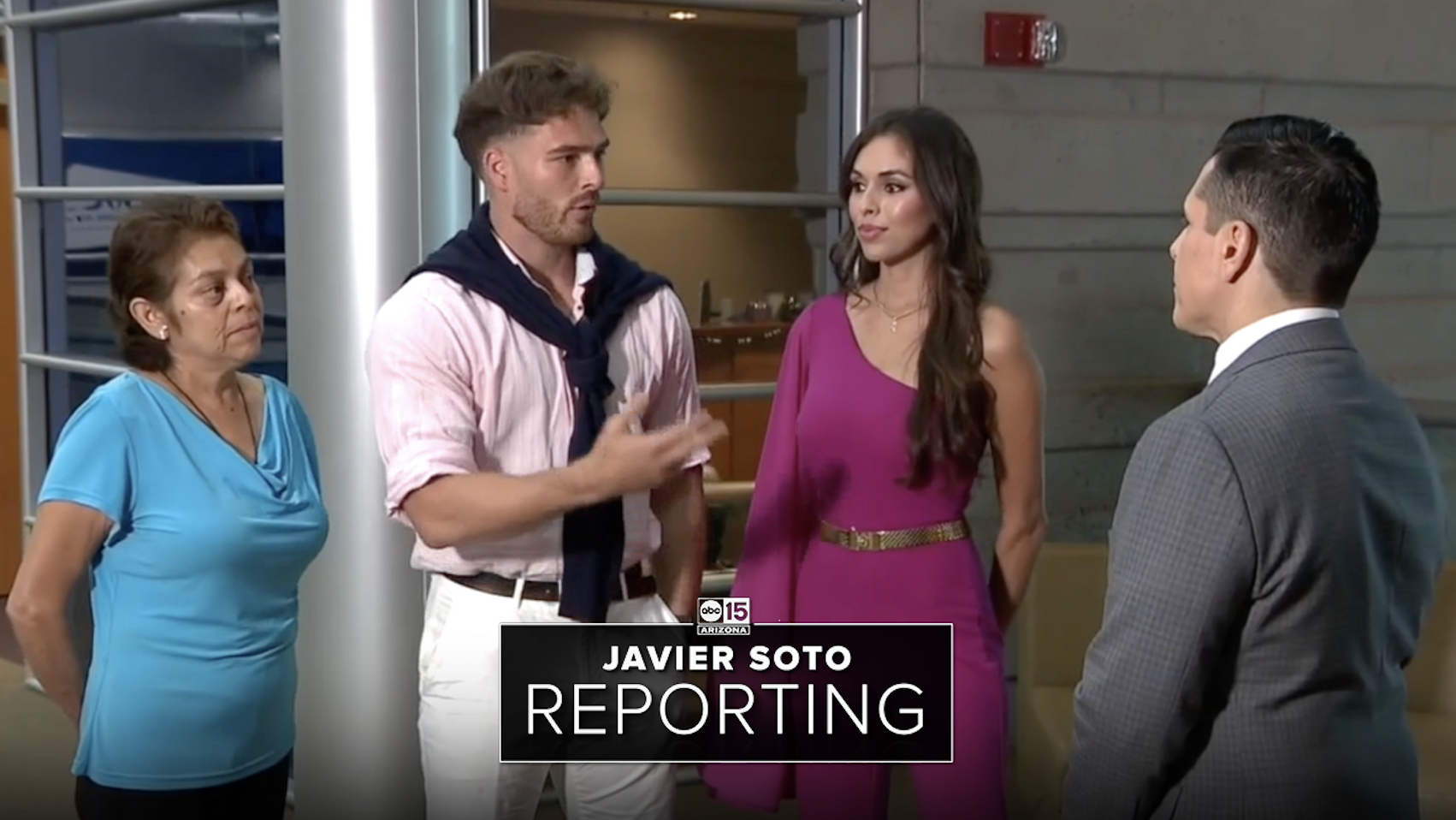PHOENIX — Former Miss Arizona Yesenia Vidales Valentine is sharing her story of survival after she and her mother were both diagnosed with breast cancer just months apart.
Valentine said she was still trying to comprehend the kind of news no daughter wants to hear: her mother’s breast cancer diagnosis.
“I heard a change in her voice, and she told us what had happened,” Valentine said. “Even right now, I feel emotional talking about it. She told us the news, and I think I cried for about a week straight.”
Valentine stood by her mother, Sonia’s side, through doctor’s appointments and chemotherapy, determined to help her beat the disease. But months later, that experience prompted Valentine to perform a self-check of her own.
“I was just in the restroom, and I started to feel around, and I went, ‘That’s odd,'" According to Valentine. "'Something’s there that shouldn’t be.’ I kind of put it off for a couple of months.”
Despite the delay, doctors confirmed what she feared: she too had breast cancer.
“When you hear those words, the first thought that goes through your mind is, ‘Am I going to die?’” she said.
Doctors removed the lump and recommended radiation and chemotherapy.

Do you have a concern in your community or a news tip? We want to hear from you!
Connect with us: share@abc15.com
“It strips you of your identity,” Valentine said. “You have to really love the shell of who you are, and you essentially hit rock bottom. Thankfully, I was able to keep my hair. I didn’t have to finish the full chemo regimen, but I know women who have lost their hair — such as my mom and other young women — and that is incredibly difficult.”
Valentine is part of a growing trend: more young women are being diagnosed with breast cancer. According to the American Cancer Society, from 2012 to 2021, breast cancer cases among women under 50 increased at a faster rate than in women over 50.
Dr. Lida Mina, a breast cancer specialist at Mayo Clinic, said the rise in younger diagnoses is concerning.
“Unfortunately, it’s not something we can pinpoint,” Mina said. “In some cases, it’s genetically driven, but much of the surge in incidents appears to be environmentally driven.”
Mina advises younger women to be proactive about their health, even before reaching the recommended screening age of 40. She believes having open communication with your Primary Care Physician is important.
“They should already ask about a detailed family history, both maternal and paternal sides matter,” Mina said. “It’s not only first-degree relatives but also second-degree relatives. Knowing that, as well as maintaining a healthy lifestyle, is important.”
After 15 rounds of radiation, Valentine was declared cancer-free. Now, she wants to use her experience to empower other women to advocate for their health.
“You have to be your own advocate,” she said. “Even if you don’t have family history, push for exams, push to get checked, push to get a biopsy — even if they say you’re fine.”
Reflecting on her journey, Valentine says her mother’s diagnosis may have saved her life.
“I cry when I think about it,” she says. “I’ve told her that if it wasn’t for her, I might not be here today.”





